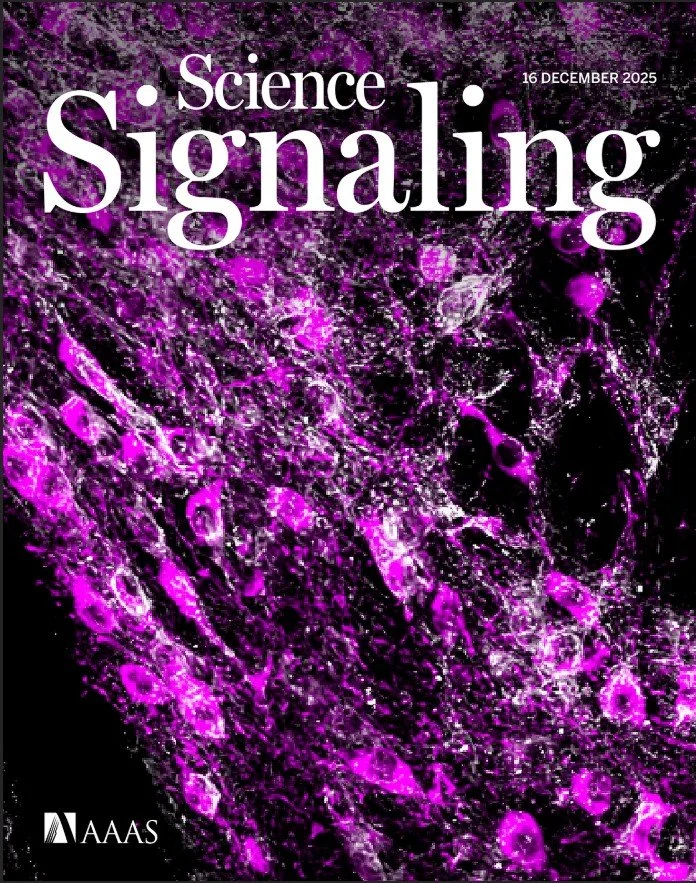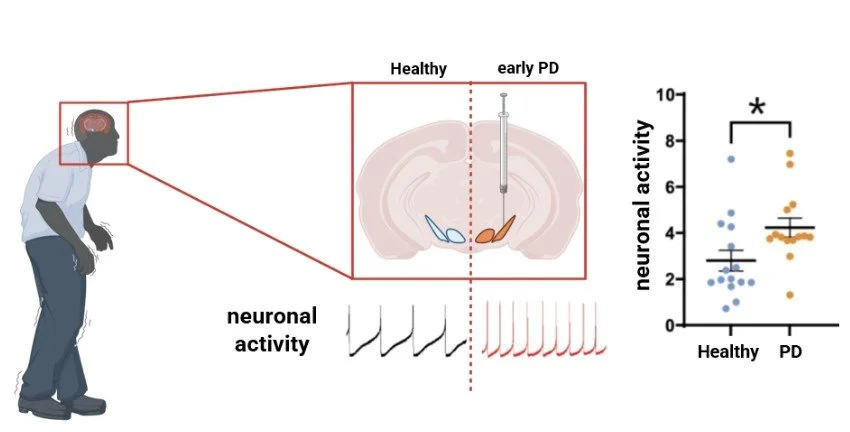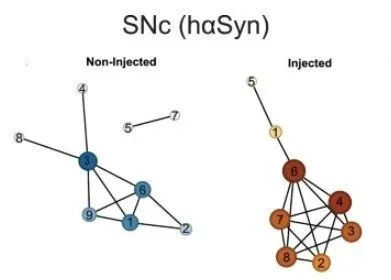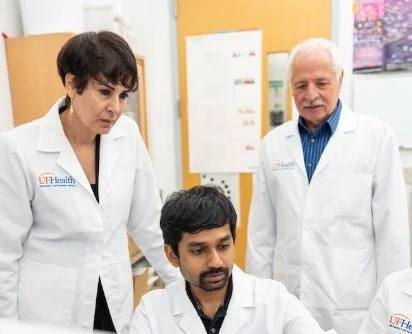Unexpected finding could offer new treatment targets for meth addiction
University of Florida neuroscientists have made a mechanistic discovery that paves the way to test immune-modulating medicines as a potential tool to break the cycle of methamphetamine addiction. The team led by Habibeh Khoshbouei, Ph.D., Pharm.D., examined the role of neuroinflammation in meth addiction to provide a deeper understanding of the mechanisms at work.
Lin et al. show that the methamphetamine-induced release of the neurotransmitter dopamine, which promotes the drug's addictive and neurotoxic effects, is mediated in part by its co-induction of neuroinflammatory signaling. The image shows staining for the TNF-α receptor (white) in mouse dopaminergic midbrain neurons (pink).
*Featured Paper & Cover Image on Dec. 16, 2025 Science Signaling Issue
Habibeh Khoshbouei: Misuse of Adderall promotes stigma, mistrust for patients who need it
Adderall is the commercial name of a mixture of a few types of amphetamines, which are stimulants that increase dopamine levels in the brain to help address deficits in those with ADHD. The underlying processes that lead to ADHD are poorly understood. The core symptoms include hyperactivity, inattention, mood swings, temper, disorganization, stress sensitivity and impulsivity. Multiple studies suggest that these symptoms may be due to the improper regulation of dopamine levels in the brain.
The Hidden Stage of Parkinson’s: A Window for Early Intervention
In a recent study, Dr. Habibeh Khoshbouei, professor of neuroscience at the University of Florida’s Fixel Institute and Department of Neuroscience, set out to discover what happens to these cells before they die. Khoshbouei and her team specifically looked at a protein called alpha-synuclein to see how it affects brain cell activity in mice.
Instead of waiting until the cells were gone, they captured an earlier stage: when the cells were still alive but “struggling.” In the SNc, neurons began firing abnormally fast and lost their ability to recover after stress. Meanwhile, neurons in the VTA stayed stable, showing little change. By observing this process in real time, the team uncovered a hidden stage of Parkinson’s, a moment when cells are sick but not yet dead.
Check out the full study here: Parkinson’s paradox: alpha-synuclein’s selective strike on SNc dopamine neurons over VTA | npj Parkinson’s Disease
UF undergrad takes top prize in national science contest
In the McKnight Brain Institute lab of Habibeh Khoshbouei, Ph.D., Pharm.D., sustenance for student assistants comes in many forms: From homecooked nutritious snacks to a devoted crew of mentors, the lab’s focus is on fueling both body and mind.
And so a big celebration was in order this week when the name of undergraduate student Devon Borg appeared in Science magazine for taking the top prize in the Brain and Behavior category of the 2025 American Association for the Advancement of Science Student E-poster Competition.
UF neuroscientists discover biomarker with potential to aid Parkinson’s diagnosis
University of Florida neuroscientists have developed a new assay, or test, to detect minute amounts of a protein called tyrosine hydroxylase in blood immune cells of Parkinson’s disease patients, a key finding to aid in the development of a blood test to help diagnose and guide treatment for the neurodegenerative disorder.
Check out the full article at npj Parkinson’s Disease.
